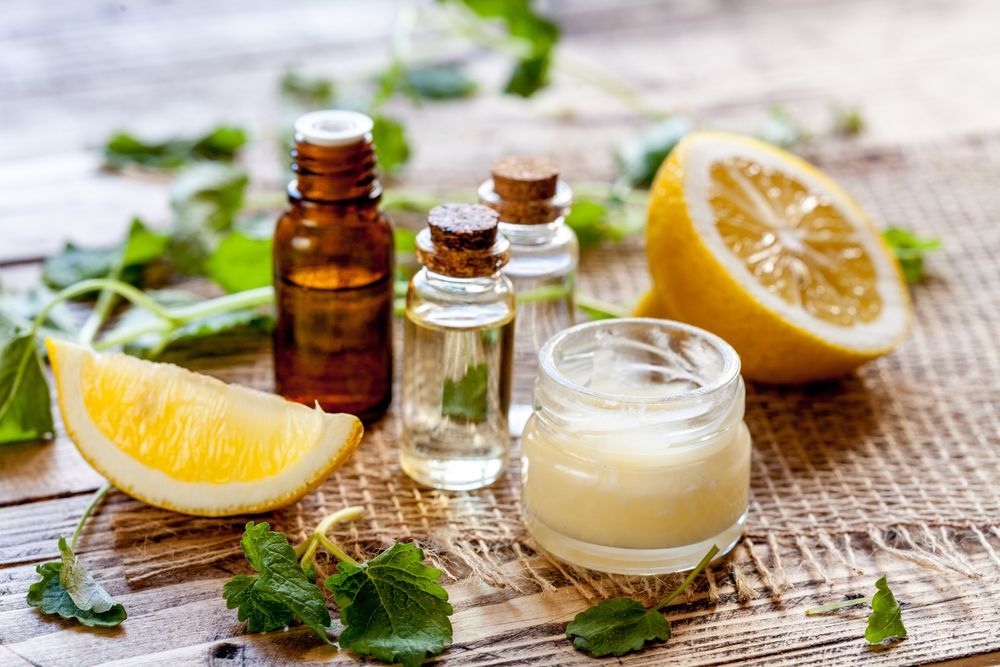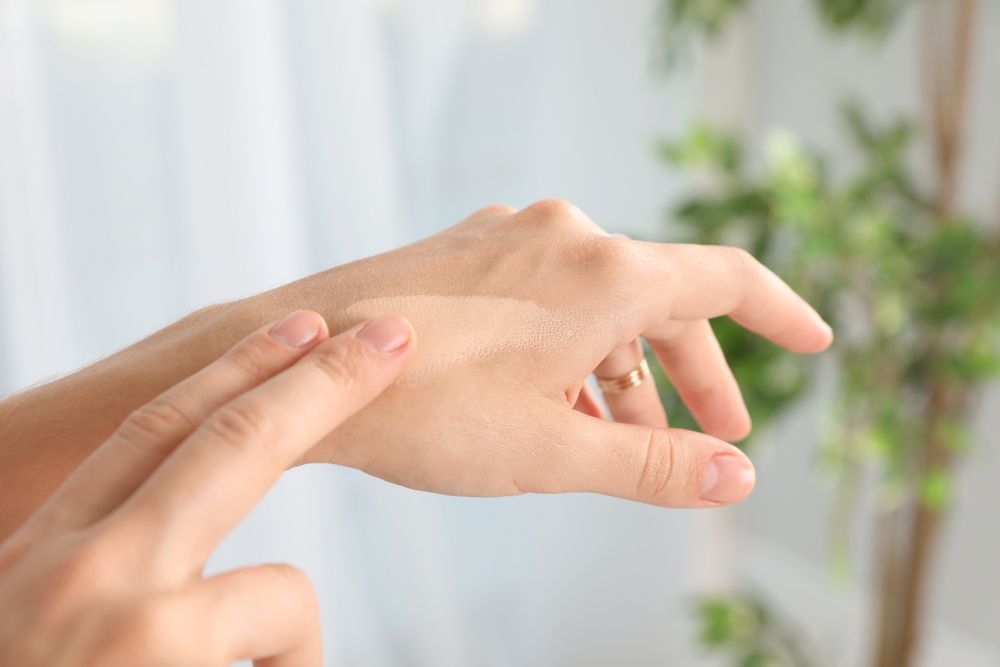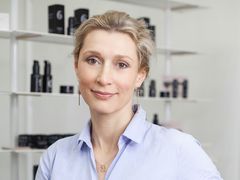Would you be able to choose a cream based on its composition, similar to pâté or other foods? There are substances in the composition of both that are worth avoiding, but it is very difficult for a layman to know about it. So what about the harmfulness or safety of cosmetics and what should you buy them according to? This is also the subject of an interview with Natália Živocká.
Photo: Archive of Natália Živocká
Natálie Živocká obtained an engineering degree in the field of biomaterials and cosmetics at the Tomáš Bata University in Zlín. She is therefore a cosmetologist or cosmetic chemist and can not only assess the composition of cosmetics and the safety of ingredients, but also invent or mix new products and test them. He is one of the experts who prepared the Wewell application, which evaluates the composition of cosmetic products.Photo: Natália Živocká’s archive
I assume that there are some E’s taking care of preservation and durability in cosmetics, similar to food. It is so?
It’s very similar – even in cosmetics, we need products to not spoil quickly, because a spoiled product can be dangerous. However, preservatives can irritate the skin and be harmful to the environment. They get into the water because we wash the cosmetics off the body with water, which then flows into the purifier. But all ingredients are evaluated according to EU legislation and according to the results, their use may be limited by the permitted concentration or may be prohibited. When determining the concentrations, it is assumed that you will usually use them for 3-6 months.
That’s the concentration in one product, but we often layer more when applying makeup and it’s easy to exceed this recommended dose, right?
Yes, if we are not careful with the composition. Few people are interested in choosing cosmetics, and we usually only read whether it is a product for wrinkles, acne, hydration, or oily skin. And then the dosage of the problematic component can be skipped and cause, for example, skin irritation.
But to know the composition of cosmetics is more of a girl’s thing, someone just doesn’t have the patience or knowledge for that.
That’s right, it’s hell because the nomenclature in cosmetics has nothing to do with the chemistry we learn in school. An ordinary user has no chance. And that’s why we invented it the Wewell app, who will help with this – you scan the barcode from the product and she will read it for you, assess the individual ingredients, classify them as safe and suitable for your skin. She is impartial, she is not interested in the brand of the product, she only evaluates the composition, nothing else.
In cosmetics, the label organic is a bit problematic, because the law does not recognize such a term. It is up to the manufacturer to label it as such.
From the point of view of safety and problematic chemistry in cosmetics, does it apply to food, that it is always better to choose a product labeled organic?
In cosmetics, the label organic is a bit problematic, because the law does not recognize such a term. It is up to the manufacturer whether they label it as such, and if they don’t, they can’t be prosecuted for it. The only guide is any certificates obtained – of course, even these are awarded by private entities and manufacturers pay for it, so it’s a good idea to choose one that has a good reputation and that you trust. They usually specify that there are no petroleum products, synthetic products and dyes in the composition, and there must be at least 98% of ingredients of natural origin.
In addition, the organic label has two levels. The first is that the product does not threaten nature, aquatic animals or burden the drinking water purification process. But when it comes to improving or maintaining skin quality, as a chemist I don’t see much of a difference between the label natural and synthetic, because the active ingredient can often be the same molecule, the same substance, just made differently.
As people want to avoid chemicals, there is a growing interest in homemade, purely herbal and natural cosmetics. Is she a good choice?
Personally, I would never put anything on my skin for which I do not know the exact origin and production process. At home, it is very difficult to preserve the product properly, so it spoils quickly and it is not certain what the used ingredients degrade to. In addition, the purity of the production and the purity of the raw materials cannot be guaranteed. It is also true that natural ingredients are more susceptible to temperature and humidity, bacteria that got there during production can multiply in them. It’s risky for me.

Photo: JoyStudio, Shutterstock.com
When choosing cosmetics, take an interest in the composition and, for homemade ones, pay attention to cleanliness during production Photo: Joy Studio, Shutterstock.com
And are there natural cosmetics that you consider safe?
Yes, you can buy it in a traditional drugstore and I would trust the one with certificates such as Ekocert, CPK or Natrue. You know, it is not so important to choose between natural and other cosmetics at all costs, but to find the one that is suitable for your skin, does not cause redness or any other reaction and keeps the skin in a satisfactory quality. Because that is the task of cosmetics, to maintain the skin, and not to perform miracles.
But when we look at the ads, they almost promise a miracle. Maybe also thanks to new rejuvenating ingredients – before it was hyaluronic acid, now retinol or bakuchiol. How effective are they really?
There will always be some substance that will be popular – it used to be coenzyme Q10just today retinol, something else will appear in a few years. Partly it is marketing, but we also discovered the procedure of how to use that substance in cosmetics correctly, how to get it into the skin so that it has an effect. And the named ones have a comparable and demonstrable effect, only thanks to advertising you can see one of them more at a certain moment.
The skin has to get used to retinol, so never use a cream with it immediately for daily use.
So should I throw away the “old” hyaluronic acid cream and quickly buy a new one with retinol?
Be sure not to throw anything away, use it up, and only when you buy a new one can it be the one with retinol. Even though I see several risks with him that are not talked about much. It’s put in almost everything now, so it’s easy to overdose. And this can damage the skin barrier, which is not easy to restore.
That’s why you should look for it in everything you use and make sure it’s only in one of the preparations. You should also know that the skin has to get used to retinol, so for example never apply a cream with it immediately for daily use. At first, use it once a week, then after a fortnight twice a week – until about three months later, you should apply it every other day or every day, if the skin does not protest. And if you use it, always protect your skin against UV rays, because it increases the skin’s sensitivity to the sun.
Can the UV protection be makeup with a protective factor?
With a protection factor there is a problem with makeup. In order for said factor to be effective, you need to put a sufficient amount on the make-up – and that is the length of two fingers, the index and the middle finger. It’s a really large amount that no one normally uses, and the skin is thus not sufficiently protected against UV. It is better to use a classic sunscreen, let it dry, and only then apply make-up.

Photo: New Africa, Shutterstock.com
Cosmetics are not supposed to work miracles, but to keep the skin in good conditionPhoto: New Africa, Shutterstock.com
What do we harm ourselves the most or most often when using cosmetics?
We buy an expensive cream and then only use it occasionally to make it last when it was expensive. But it can only work with regular use, and moreover, after some time it starts to deteriorate and can actually cause damage. Every time we take a finger, we introduce bacteria and fungi into it, which multiply in it. And few follow the recommended shelf life of creams after opening, which is usually 3-6 months, as indicated by the open box symbol on the packaging.
And can cosmetics harm us after this period? We all probably have an old mascara, lipstick or shadows in our cosmetic bag.
The most risky are those that we apply to a larger surface of the skin and are liquid, so they are absorbed more into the skin – foundation cream, bases, make-up, correctors and the like. Less problematic are those in a tube or pump, which we do not reach into. Loose powders or eye shadows do not contain water and bacteria do not stay in them. With those, the problem is again with the degradation of pigments, i.e. a possible change of color. But it’s not dramatic and I wouldn’t be afraid to use them even after the deadline. Actually, I haven’t met anyone who could use up the shadows within the recommended time.
There will always be some substance that will be popular – before it was coenzyme Q10, today it is retinol, in a few years something else. Part of it is marketing.
Since you know the composition of cosmetics, do you have any tips for us on a great product that will delay wrinkles?
If I could recommend something, it would be the daily use of an anti-UV product. It is this radiation that affects the aging of the skin and the formation of wrinkles, so you will protect yourself, you will not age prematurely, and you will also protect yourself against skin cancer. I would recommend daily use of at least SPF 30.
And aren’t their ingredients dangerous for daily use?
The EU has one of the strictest laws regarding the composition of UV products, so if you buy them in a brick-and-mortar store, they are fine. Those purchased outside the EU could be at risk. And also be careful – only those with a physical UV filter that is not absorbed into the skin may be used for children under three years of age.
And what about anti-wrinkle products, they are even specially made for +20, +40 and the like. Is it good to follow this age recommendation?
The skin changes with age, but I would take these recommendations as very indicative. The main criterion is what your skin needs right now. Someone can have acne in their 40s and be fine with cosmetics for 20-year-olds. If you don’t know what to choose, go to a beautician for advice.











